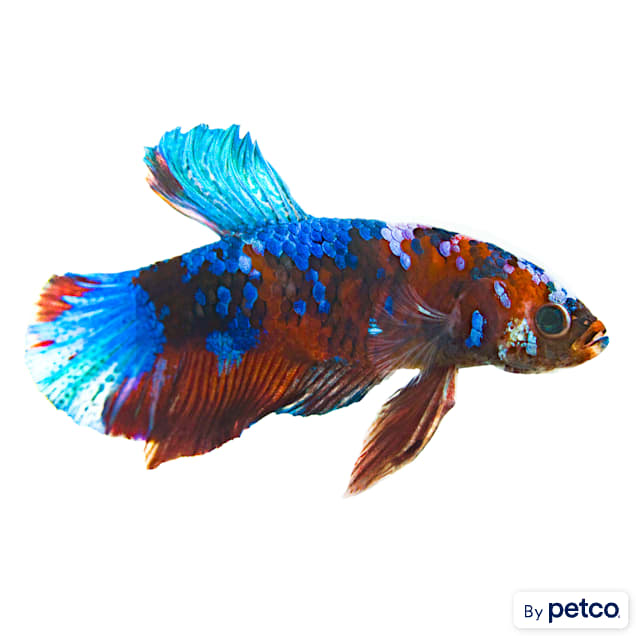The Ultimate Betta Fish Care Guide for New Pet Owners
The Ultimate Guide to Betta Fish Treatment: Crucial Tips for Maintaining a Healthy and Thriving Aquarium Environment
Effective Betta fish care requires a detailed understanding of their one-of-a-kind environmental and physiological needs. Establishing an ideal fish tank begins with picking the right storage tank dimension and making sure optimal water problems, which are essential for the wellness and wellness of your Betta.
Picking the Right Tank
Choosing the proper container for your Betta fish is important to guaranteeing its health and wellness. Bettas thrive in atmospheres that resemble their natural environments, which generally are composed of calm, cozy waters. A container size of a minimum of 5 gallons is recommended to give appropriate swimming space, as smaller containers can result in stress and health concerns for these vibrant fish.
When selecting a container, take into consideration the tank's shape and filtration system. Furthermore, a reputable filtering system is important to keep water quality and decrease the regularity of water changes.
Temperature level guideline is one more key factor; Bettas favor water temperature levels between 76 ° F and 82 ° F. Investing in a good heating unit will make certain that the water remains within this range, advertising a healthy and balanced and energetic way of living for your Betta. Lastly, offering appropriate storage tank designs and concealing places will certainly help in reducing anxiety and encourage natural behaviors, even more enhancing your Betta's well-being.
Maintaining Water High Quality
Maintaining ideal water quality is vital for the health and long life of Betta fish. This requires normal surveillance of various specifications, including temperature, pH, ammonia, nitrite, and nitrate levels. Bettas grow in temperatures in between 76 ° F and 82 ° F, so keeping a stable temperature is essential. Abrupt fluctuations can bring about anxiety and disease.
Normal testing utilizing a trusted water screening kit can aid ensure these specifications remain within the suitable arrays. Ammonia and nitrite levels ought to constantly be at 0 ppm, as even low concentrations can be hazardous to Betta fish.
Routine water changes are important to maintaining water high quality. Additionally, including a robust purification system can help in maintaining water clearness and high quality, supplying a much healthier environment for your Betta fish.
Ideal Feeding Practices
Offering a well balanced diet is crucial for the wellness and vibrant coloration of Betta fish, as their dietary needs play a significant role in their general wellness. Betta fish are carnivorous by nature, requiring a diet plan high in healthy protein. A combination of premium pellets, icy or live foods such as bloodworms, salt water shrimp, and daphnia can provide the crucial nutrients they need.
Feed your Betta fish a couple of times a day, using just what they can consume within two to 3 mins to avoid overfeeding and keep water top quality. Overfeeding can result in excessive weight and health problems, consisting of swim bladder illness. It is necessary to monitor their dietary consumption and change section sizes appropriately.
In addition to protein, a well balanced diet must consist of vitamins and minerals to advertise optimum health. Think about supplementing their diet regimen with premium flakes or pellets particularly created for Betta fish, as these usually contain needed ingredients.

Creating an Ideal Habitat

Water high quality is paramount; keep a temperature between 76 ° F and 82 ° F, and ensure the pH level ranges from 6 - betta fish.5 to 7.5. Routine water adjustments of 25-50% weekly will assist maintain contaminants away and ensure a stable atmosphere
Including plants and concealing places is important, as Betta fish are normally territorial and appreciate having areas to check out and pull away. Live or silk plants, along with caves and ornaments, can produce a revitalizing environment.

Normal Wellness Checkups
Conducting regular health checkups is vital for ensuring the health of Betta fish, as very early detection of possible issues can prevent serious wellness problems. These check-ups ought to include a complete evaluation of the fish's physical problem, behavior, and environmental variables.
Begin by observing the Betta fish for any indications of distress, such as sleepiness, anorexia nervosa, or uncommon swimming patterns. Additionally, check the fins and body for indicators of discoloration, sores, or fin rot, which can indicate infections or bloodsuckers. Frequently keeping track of the water top quality in the fish tank is equally important; Learn More parameters such as pH, ammonia, nitrite, and nitrate levels must be kept within optimal varieties to stop tension and ailment.
Moreover, take into consideration keeping a log of wellness observations and water quality examinations. Prompt treatment can make a substantial distinction in the healing of your Betta fish, making sure a lengthy and healthy and balanced life in a properly maintained fish tank setting.
Verdict
In verdict, successful Betta fish treatment hinges on developing and maintaining an optimum aquarium setting. By complying with these standards, aquarists can promote the health and vibrancy of Betta fish, ultimately resulting in a growing marine ecosystem.